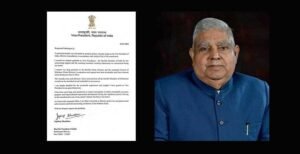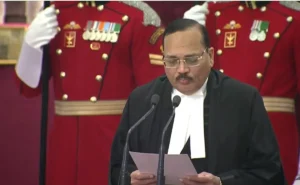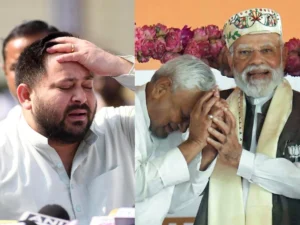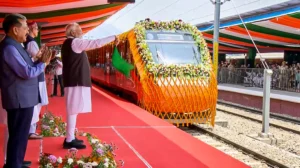Jagdeep Dhankhar submitted his resignation as Vice President during what many observers describe as the most dramatic parliamentary session in recent memory. The announcement caught political analysts completely off guard, creating immediate uncertainty about India’s constitutional leadership structure.
Parliamentary sources confirm the resignation came after hours of heated debate in the Rajya Sabha. Your understanding of Indian politics helps you grasp why this development matters so significantly for the nation’s future direction.
The Eventful Day That Changed Everything
The morning began with routine parliamentary business, but tensions escalated quickly during afternoon proceedings. Heated exchanges between opposition leaders and treasury bench members created an atmosphere thick with political drama.
Witnesses describe unprecedented scenes as members from various parties engaged in sharp verbal exchanges. Your knowledge of parliamentary procedures helps you understand how unusual such dramatic confrontations truly become.
Key Factors Leading to This Decision
Several critical issues converged to create this explosive political moment:
- Constitutional disputes regarding parliamentary procedure interpretations
- Political pressure from various party coalitions demanding procedural changes
- Public criticism over recent controversial decisions during parliamentary sessions
The Vice President’s office faced mounting pressure from multiple directions simultaneously. Your awareness of Indian constitutional roles helps clarify why these tensions became ultimately unsustainable for continued effective leadership.
Opposition parties had repeatedly challenged various parliamentary rulings made during recent contentious sessions. These challenges created persistent friction that many political observers believe contributed directly to today’s shocking announcement.
Immediate Political Reactions Pour In
Political leaders across party lines expressed their views about this unexpected development within hours of the announcement. Treasury bench members described their surprise, while opposition figures called these events entirely predictable given recent tensions.
Senior government officials began immediate consultations about constitutional procedures for selecting replacement leadership. Your understanding of these complex processes helps explain why swift action becomes essential during such transitions.
Parliamentary experts suggest this resignation could trigger broader discussions about reforms within India’s upper house procedures. Many believe these events highlight systemic issues requiring immediate attention from constitutional scholars.
Constitutional Implications and Next Steps
The resignation creates several immediate challenges for India’s parliamentary system that require quick resolution. Constitutional experts emphasise the importance of following proper succession procedures during this critical transition period.
President’s office sources indicate consultations with legal advisors began immediately after receiving the formal resignation letter. Your familiarity with constitutional processes helps you understand why these consultations prove absolutely vital for maintaining governmental stability.
Key constitutional questions emerge about the timing for selecting new leadership while ensuring continued parliamentary functionality. Legal scholars debate various procedural aspects that could influence the selection timeline significantly.
Impact on Parliamentary Proceedings
Rajya Sabha operations face immediate uncertainty as members adjust to this sudden leadership change affecting daily parliamentary business. Committee schedules and legislative agendas require substantial revisions given these unprecedented circumstances.
Opposition parties signal their readiness to cooperate during this transition while maintaining their right to voice concerns about future leadership appointments. Your appreciation for parliamentary democracy helps explain why such cooperation proves essential during constitutional transitions.
Parliamentary sessions scheduled for the coming weeks may face significant modifications as leadership structures undergo necessary adjustments. These changes could affect important legislative timelines that political parties consider absolutely crucial.
Broader Political Ramifications
This resignation sends ripple effects throughout India’s political landscape that extend far beyond immediate parliamentary concerns. State governments and regional parties closely monitor developments while assessing potential impacts on their local political calculations.
Coalition dynamics face potential shifts as parties recalibrate their strategies following this unexpected leadership change. Your understanding of Indian political alliances helps explain why these recalibrations could prove particularly significant during this crucial period.
Political analysts suggest these events might influence upcoming electoral calculations in various states where parties must now adjust their messaging strategies. Campaign narratives require updates reflecting this changed political landscape.
Looking Forward: What This Means
Constitutional experts emphasise the resilience of India’s democratic institutions during such challenging transitions that test governmental stability. Democratic processes continue functioning despite leadership changes that might temporarily disrupt normal operations.
The search for replacement leadership begins immediately, with various names circulating among political circles as potential candidates. Your knowledge of constitutional requirements helps you understand which candidates might prove most suitable for this crucial position.
This resignation ultimately demonstrates how democratic accountability operates within India’s constitutional framework, even during the most dramatic political circumstances that challenge institutional norms.








Be First to Comment